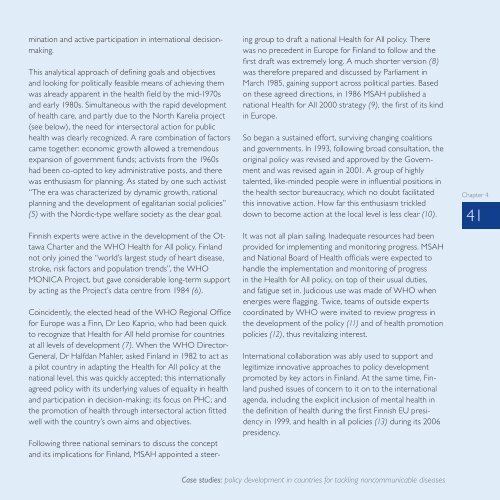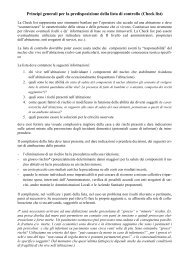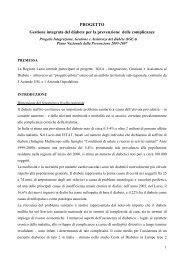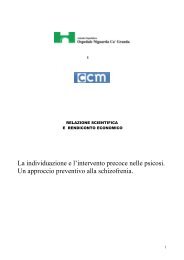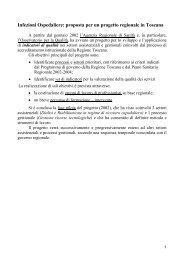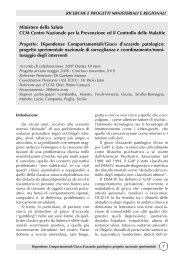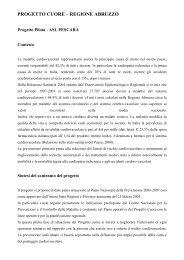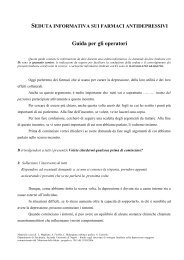Gaining health : analysis of policy development in European ...
Gaining health : analysis of policy development in European ...
Gaining health : analysis of policy development in European ...
Create successful ePaper yourself
Turn your PDF publications into a flip-book with our unique Google optimized e-Paper software.
m<strong>in</strong>ation and active participation <strong>in</strong> <strong>in</strong>ternational decisionmak<strong>in</strong>g.<br />
This analytical approach <strong>of</strong> def<strong>in</strong><strong>in</strong>g goals and objectives<br />
and look<strong>in</strong>g for politically feasible means <strong>of</strong> achiev<strong>in</strong>g them<br />
was already apparent <strong>in</strong> the <strong>health</strong> field by the mid-1970s<br />
and early 1980s. Simultaneous with the rapid <strong>development</strong><br />
<strong>of</strong> <strong>health</strong> care, and partly due to the North Karelia project<br />
(see below), the need for <strong>in</strong>tersectoral action for public<br />
<strong>health</strong> was clearly recognized. A rare comb<strong>in</strong>ation <strong>of</strong> factors<br />
came together: economic growth allowed a tremendous<br />
expansion <strong>of</strong> government funds; activists from the 1960s<br />
had been co-opted to key adm<strong>in</strong>istrative posts, and there<br />
was enthusiasm for plann<strong>in</strong>g. As stated by one such activist<br />
“The era was characterized by dynamic growth, rational<br />
plann<strong>in</strong>g and the <strong>development</strong> <strong>of</strong> egalitarian social policies”<br />
(5) with the Nordic-type welfare society as the clear goal.<br />
F<strong>in</strong>nish experts were active <strong>in</strong> the <strong>development</strong> <strong>of</strong> the Ottawa<br />
Charter and the WHO Health for All <strong>policy</strong>. F<strong>in</strong>land<br />
not only jo<strong>in</strong>ed the “world’s largest study <strong>of</strong> heart disease,<br />
stroke, risk factors and population trends”, the WHO<br />
MONICA Project, but gave considerable long-term support<br />
by act<strong>in</strong>g as the Project’s data centre from 1984 (6).<br />
Co<strong>in</strong>cidently, the elected head <strong>of</strong> the WHO Regional Office<br />
for Europe was a F<strong>in</strong>n, Dr Leo Kaprio, who had been quick<br />
to recognize that Health for All held promise for countries<br />
at all levels <strong>of</strong> <strong>development</strong> (7). When the WHO Director-<br />
General, Dr Halfdan Mahler, asked F<strong>in</strong>land <strong>in</strong> 1982 to act as<br />
a pilot country <strong>in</strong> adapt<strong>in</strong>g the Health for All <strong>policy</strong> at the<br />
national level, this was quickly accepted; this <strong>in</strong>ternationally<br />
agreed <strong>policy</strong> with its underly<strong>in</strong>g values <strong>of</strong> equality <strong>in</strong> <strong>health</strong><br />
and participation <strong>in</strong> decision-mak<strong>in</strong>g; its focus on PHC; and<br />
the promotion <strong>of</strong> <strong>health</strong> through <strong>in</strong>tersectoral action fitted<br />
well with the country’s own aims and objectives.<br />
Follow<strong>in</strong>g three national sem<strong>in</strong>ars to discuss the concept<br />
and its implications for F<strong>in</strong>land, MSAH appo<strong>in</strong>ted a steer<strong>in</strong>g<br />
group to draft a national Health for All <strong>policy</strong>. There<br />
was no precedent <strong>in</strong> Europe for F<strong>in</strong>land to follow and the<br />
first draft was extremely long. A much shorter version (8)<br />
was therefore prepared and discussed by Parliament <strong>in</strong><br />
March 1985, ga<strong>in</strong><strong>in</strong>g support across political parties. Based<br />
on these agreed directions, <strong>in</strong> 1986 MSAH published a<br />
national Health for All 2000 strategy (9), the first <strong>of</strong> its k<strong>in</strong>d<br />
<strong>in</strong> Europe.<br />
So began a susta<strong>in</strong>ed effort, surviv<strong>in</strong>g chang<strong>in</strong>g coalitions<br />
and governments. In 1993, follow<strong>in</strong>g broad consultation, the<br />
orig<strong>in</strong>al <strong>policy</strong> was revised and approved by the Government<br />
and was revised aga<strong>in</strong> <strong>in</strong> 2001. A group <strong>of</strong> highly<br />
talented, like-m<strong>in</strong>ded people were <strong>in</strong> <strong>in</strong>fluential positions <strong>in</strong><br />
the <strong>health</strong> sector bureaucracy, which no doubt facilitated<br />
this <strong>in</strong>novative action. How far this enthusiasm trickled<br />
down to become action at the local level is less clear (10).<br />
It was not all pla<strong>in</strong> sail<strong>in</strong>g. Inadequate resources had been<br />
provided for implement<strong>in</strong>g and monitor<strong>in</strong>g progress. MSAH<br />
and National Board <strong>of</strong> Health <strong>of</strong>ficials were expected to<br />
handle the implementation and monitor<strong>in</strong>g <strong>of</strong> progress<br />
<strong>in</strong> the Health for All <strong>policy</strong>, on top <strong>of</strong> their usual duties,<br />
and fatigue set <strong>in</strong>. Judicious use was made <strong>of</strong> WHO when<br />
energies were flagg<strong>in</strong>g. Twice, teams <strong>of</strong> outside experts<br />
coord<strong>in</strong>ated by WHO were <strong>in</strong>vited to review progress <strong>in</strong><br />
the <strong>development</strong> <strong>of</strong> the <strong>policy</strong> (11) and <strong>of</strong> <strong>health</strong> promotion<br />
policies (12), thus revitaliz<strong>in</strong>g <strong>in</strong>terest.<br />
International collaboration was ably used to support and<br />
legitimize <strong>in</strong>novative approaches to <strong>policy</strong> <strong>development</strong><br />
promoted by key actors <strong>in</strong> F<strong>in</strong>land. At the same time, F<strong>in</strong>land<br />
pushed issues <strong>of</strong> concern to it on to the <strong>in</strong>ternational<br />
agenda, <strong>in</strong>clud<strong>in</strong>g the explicit <strong>in</strong>clusion <strong>of</strong> mental <strong>health</strong> <strong>in</strong><br />
the def<strong>in</strong>ition <strong>of</strong> <strong>health</strong> dur<strong>in</strong>g the first F<strong>in</strong>nish EU presidency<br />
<strong>in</strong> 1999, and <strong>health</strong> <strong>in</strong> all policies (13) dur<strong>in</strong>g its 2006<br />
presidency.<br />
Chapter 4<br />
41<br />
Case studies: <strong>policy</strong> <strong>development</strong> <strong>in</strong> countries for tackl<strong>in</strong>g noncommunicable diseases


